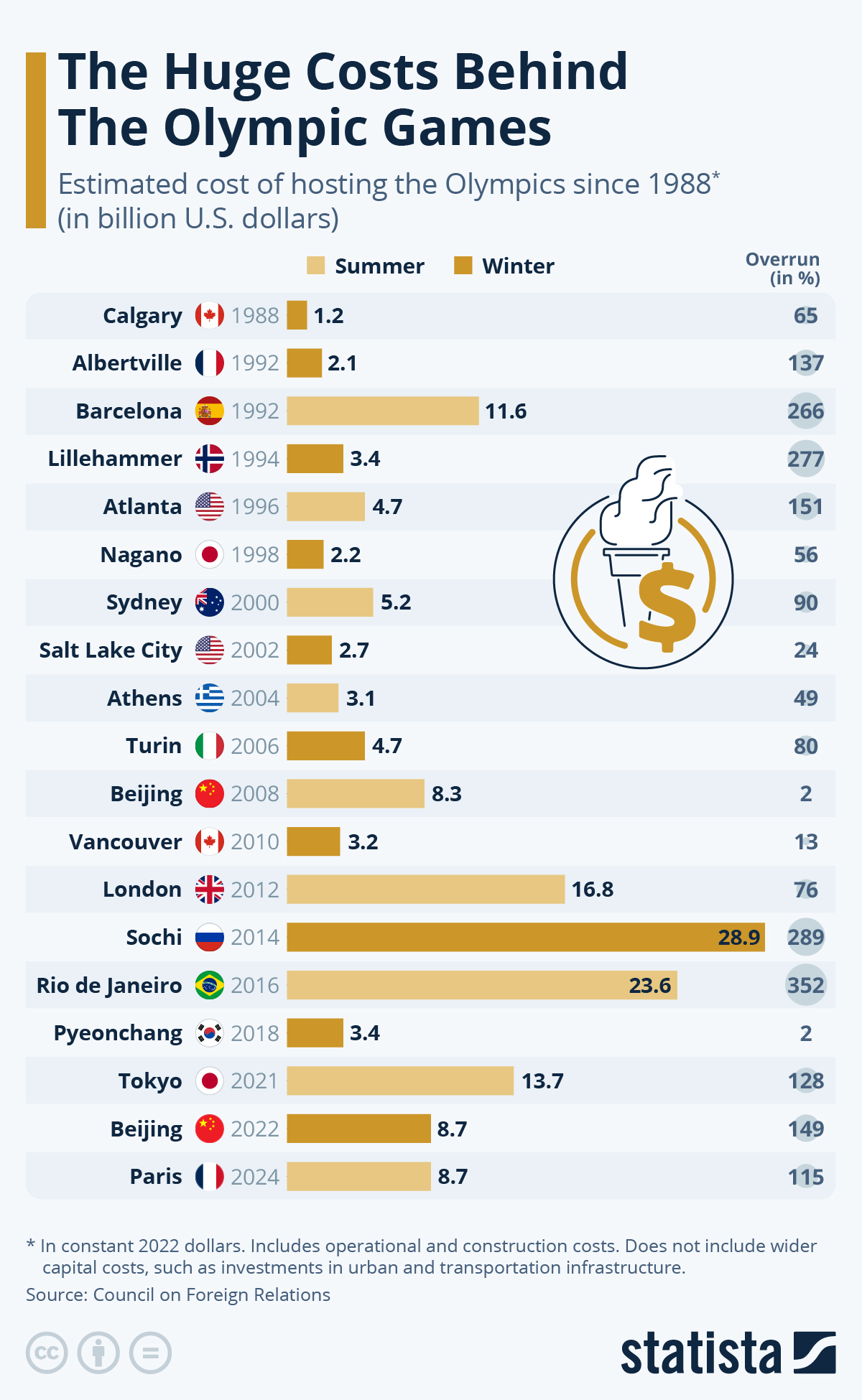The 2024 Summer Olympics are finally set to get underway in Paris today amid some substantial safety concerns like ISIS threats and this morning, large-scale vandalism of France's train network. These high-level issues are momentarily distracting observers from another train wreck affecting most Olympic Games: cost overrun.
Spending more than you have budgeted for has become the norm for host cities, but as Statista's Katharina Buchholz reports, Paris is actually not the worst of the bunch (as of current estimates) despite an overrun of more than 100 percent landing it at a cost of $8.7 billion for hosting the Games (excluding investments in urban and transportation infrastructure).
You will find more infographics at Statista
This is easily topped by Barcelona, which ran 266 percent over cost in 1992 and Rio de Janeiro in 2016, which was a whopping 352 percent over budget. Winter Games can also be more costly than expected, for example in the Russian town of Sochi in 2014, where the event was 289 percent more expensive than expected at a record-breaking 28.9 billion, or in Norway's Lillehammer in 1994, there a 277 percent overrun occurred (but the total cost was still nowhere near as high).
While hosting an event like the Olympics is sometimes touted as an opportunity to improve city infrastructure, the enduring legacy of the Games sometimes ends up being a slew of abandoned and overgrown venues that no one uses due to poor long-term planning. That remains the case to this day in past host cities such as Sarajevo, Athens, Beijing and Rio, to name just a few, where crumbling stadia and forgotten Olympic villages serve not as proud monuments to athletic achievement, but rather as somber symbols of catastrophic financial mismanagement.
Some have taken these past mistakes to heart and Hamburg, Germany, is a notable example for taking back its 2015 bid on cost grounds after a public referendum. Other cities have learned that the financial consequences can be dire only after hosting the Games.
Source link


